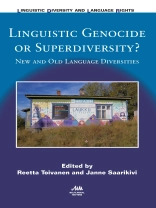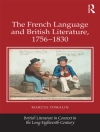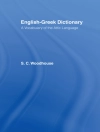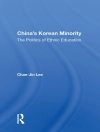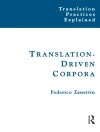Are we facing an immense wave of language death or a period of remarkable new linguistic variation? Or both? This book answers this question by analysing studies of language endangerment and loss along with those of language change, revitalization and diversity. Using case studies from Russia and the EU, the authors compare historical language variation to that of the present day, arguing that accelerated language extinction can be considered a result of colonization, modernization and globalization, but so too can many new creoles, intertwined and mixed languages, new ethnic identities, new groups of urban dwellers or migrant groups, all with their own distinct cultural traits. The book therefore surmises that the linguistic heritage of today is simultaneously more endangered and more diverse than ever before.
Table des matières
0. Reetta Toivanen and Janne Saarikivi: Introduction to New and Old Language Diversities in
Russia and Europe: Language Endangerment, Variation and Change in Minority Communities in Flux
I Language Communities or Networks of Communication? Old and New Linguistic Diversity
1. Niko Partanen and Janne Saarikivi: Fragmentation of the Karelian Language and Its Community: Growing Variation at the Threshold of Language Shift
2. Heini Lehtonen: What’s Up Helsinki? New Linguistic Diversity Among Adolescents
3. Boglárka Janurik: Varieties of Erzya–Russian Code-Switching In Radio Vaygel Broadcasts
4. Christian Pischlöger: Udmurt and Welsh on Social Network Sites
II Standardizing Languages and Ethnicities: Mission Impossible?
5. Hanna Lantto: A Tale of a City and Its Two Languages: A History of Bilingual Practices In the City Of Bilbao
6. Oksana Myshlovska: Nationalizing Fluid and Ambiguous Identities: Russia, Western Ukraine and their Ukrainian and Russian Minorities, Diasporas and ‘Compatriots Abroad’
7. Erika Sarivaara: Emergent Sámi Identities – From Assimilation towards Revitalization
8. Reetta Toivanen: Localizing the Global In the Superdiverse Municipalities in The
Artic: The Case of Inari
III Language Revitalization: Protection Standards or Tolerance for Variation
9. Konstantin Zamyatin: Russia’s Minority Education and the European Language Charter
10. Johanna Laakso: Metadiversity, Or the Uniqueness of the Lambs
11. Ulriikka Puura and Outi Tánczos: Division of Responsibility in Karelian and Veps Language Revitalization Discourse
12. Svetlana Edygarova: Standard Language Ideology and Minority Languages: The Case Of The Permian Languages of Russia
A propos de l’auteur
Janne Saarikivi is a Fellow at the Helsinki Collegium for Advanced Studies, University of Helsinki, Finland. His research interests include historical linguistics, sociolinguistics and Finno-Ugrian languages.
